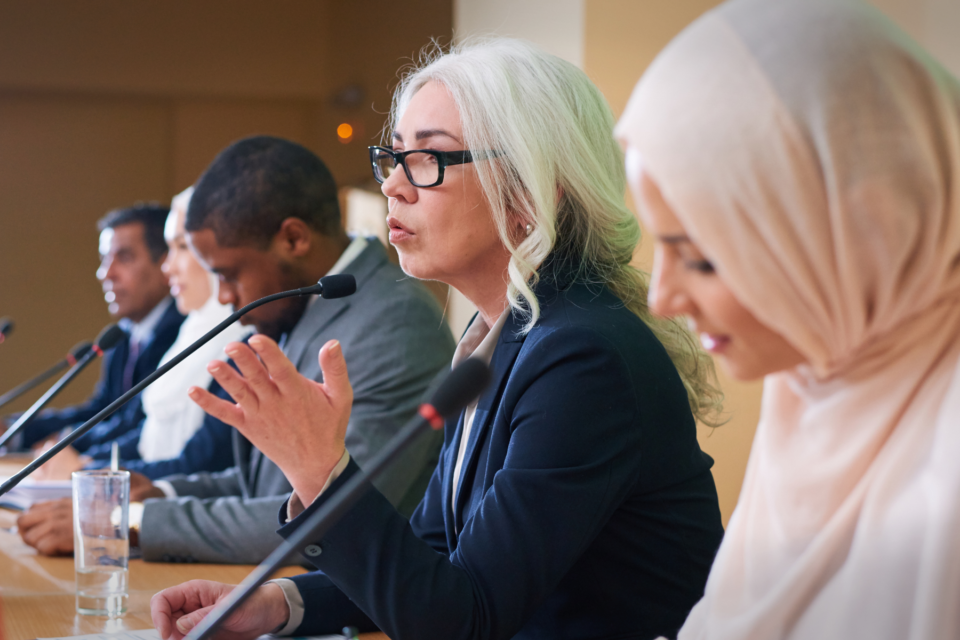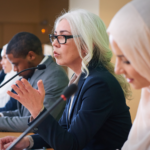Encouraging Women’s Engagement in Civic and Political Action

Story by U.S. Chamber of Commerce
An often overlooked area for gender equality is politics. Achieving gender parity in the political sphere would benefit everyone involved, but if the political atmosphere continues in the current trajectory, it will likely take more than 145 years to close the gender gap.
Both governmental and private sector organizations are working to shorten this timeline, focusing on advocating for women’s role in politics and working with young girls from around the globe. At the U.S. Chamber of Commerce Foundation’s 12th International Women’s Day Forum, female government, business and nonprofit leaders shared their insights on how we can achieve this and encourage more young girls to enter the political sphere.
Women in Politics Must Set the Tone for Young Girls
Representative Cathy McMorris Rodgers, Republican Leader of The House Energy and Commerce Committee, stressed the importance of engaging with young girls about civics and public service.
“We must dare our next generation of young women to be bold, to chase their dreams and to never give up,” she said.
According to Representative Jennifer Gonzalez-Colon, Congresswoman of Puerto Rico, she looked to examples like Prime Minister Margaret Thatcher and the Queen of England when deciding whether to pursue a career in politics. Locally, she also looked to “a speaker of the house at that time, [who] was the first woman elected.”
“I come from an island [with] a male culture of power,” Gonzalez-Colon said. “Men are the ones in positions of power. And when you … know that you can finally get a role model of a woman doing that kind of a job in politics, automatically, as a person, you’re going to follow.”
Representative Madeleine Dean, a Congresswoman representing Pennsylvania, had a non-traditional political role model.
“At 18 years of age, I was first asked to run for office by a husband and wife team in politics,” she said. “So certainly, they provided me role models for serving the local community. Many of my models were just the women who I had the good fortune of being related to or being around.”
Women Should Be Encouraged to Run for Public Office
The biggest reason why Rep. Gonzalez-Colon ran for office the first time was corruption within Puerto Rico.
“I remember my father telling me the people [who] are running are so bad that even if you run, you may win,” she recounted.
For Rep. Dean, it was a more indirect path. According to Rep. Dean, she was heavily influenced by the Civil Rights Movement of the ’60s, the Vietnam War, the assassination of President John F. Kennedy, the assassination of Martin Luther King Junior, and the assassination of Robert Kennedy. A young Rep. Dean reportedly came to the unfortunate conclusion that “the great leaders were always assassinated.”
Joining public office was her solution to “make sure we do not have more … bad leaders.”
International Private Sector Advocacy Matters
It is important to provide tools and access for young women to achieve their goals in politics. Allison Tummon Kamphuis, VP of Global Equality & Inclusion and Community Impact with Proctor & Gamble, explained how the program Save the Children cultivates young leaders from around the globe.
“One of the programs that I’m really proud of is the We See Equal Project, which aims to tackle and eliminate gender bias among young adolescents in both Mexico and Indonesia,” she explains. “Together, in these programs, we’re working to ensure that 20,000 youth and more than 80,000 people in their communities demonstrate positive and equitable gender norms and attitudes.”


